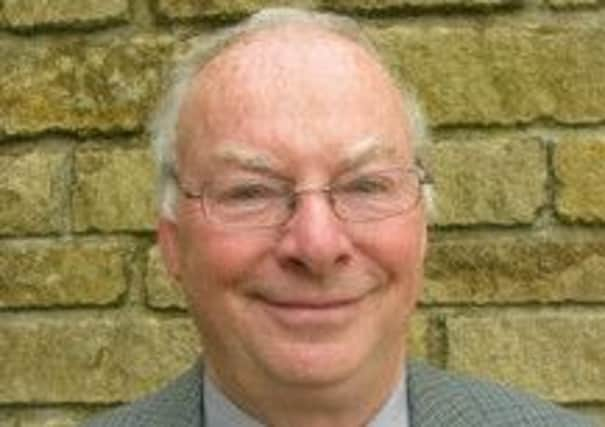Timebomb warning as elderly face rural care crisis


Residents of the region’s most remote villages are finding health and social care services increasingly difficult to access as public sector cuts bite, charities say.
And it is feared the problem will worsen as changes to funding and commissioning under the biggest-ever shake-up of the NHS take effect.
Advertisement
Hide AdAdvertisement
Hide AdDemand for services will soar over the next 15 years with the number of elderly people in rural areas set to more than double by 2028, the Yorkshire-based Rural VCS Policy Group’s health and social policy paper predicts.
Some 23 per cent of the countryside population are already over retirement age compared with 18 per cent in towns and cities.
And the number of over-85s is projected to rise by 186 per cent in rural communities compared with 149 per cent in urban areas.
Accessing services is a particular problem for this age group, the report warns – but twice as many households in the region’s countryside do not have a local GP compared with their urban counterparts.
Advertisement
Hide AdAdvertisement
Hide AdSome 3.1 per cent of countryside residents live more than 6km from their nearest practice, compared with 1.6 per cent nationally, the report says. At the same time, some rural surgeries are only open part-time, with others considering cutting hours or merging with market town practices in response to rising operating costs.
And the loss of the minimum practice income guarantee (MPIG) – which compensates GPs whose surgeries have a lower footfall – could add to the problem when it is phased out next year.
Tanja Weston, of Rural Action Yorkshire (RAY), which contributed to the report, said: “Commissioners of health and social care services must take into account the higher costs relating to access so that the needs of rural end users are met – and not rely solely on the service cost.”
Changes to funding and commissioning under last year’s Health and Social Care Act are also hitting services provided by the voluntary and community sector. New contracting arrangements, such as payment by results, is more difficult for small organisations working in rural areas, “whose capacity to work in this new environment may be limited”, it warns.
Advertisement
Hide AdAdvertisement
Hide AdAnd dwindling council funding for voluntary organisations to deliver social care and other community health services “is a concern for the future of such organisations and for the people who use their services”, it adds.
The report highlights community transport services and carers’ support organisations as among those under threat in rural areas.
Yorkshire Dales National Park Authority chairman Peter Charlesworth said: “This report confirms our concern at the prospect of rural surgeries losing the Minimum Practice Income Guarantee, and it shows how important it was for us to lobby our MPs and NHS officials.
“The future of the communities within the National Park is vital and is highlighted in the recently-launched National Park Management Plan, which was produced by a partnership of 15 organisations and details what needs to be done in the next five years.
Advertisement
Hide AdAdvertisement
Hide Ad“It’s vital that we continue to work alongside our partners to ensure we don’t suffer a diminution of health care for our residents in isolated parts of the National Park.”
Judy Robinson, chief executive of Involve Yorkshire and Humber, an umbrella organisation which supports around 15,000 charities across the region, called for more investment in the voluntary and community sector, which she
said would help to save health services money in the long-term.
“The voluntary and community sector in rural areas has two crucial roles in health,” she said.
Advertisement
Hide AdAdvertisement
Hide Ad“First, it prevents health problems through community activity. Second, in more direct ways, charities provide services from counselling to older people’s care which is tailored to people in rural areas and is delivered by organisations who understand the patch.”
Jane Ritchie, honorary secretary to the group, said the loss of MPIG payments could threaten the future of “deeply remote” practices and heap extra pressure on those that survive. “The other surgeries aren’t big enough to take an influx of people,” she said.
Patients could also face long journeys to see a doctor if their nearest practice shuts.
“It could be a 30-mile round trip that could take somebody all day by the time they’ve got the first bus and waited for another to come back again,” she said.
Advertisement
Hide AdAdvertisement
Hide AdA Department of Health spokeswoman said: “As well as putting an extra £12.7bn into the NHS, we recently announced a £3.8bn pooled health and social care budget. This is to ensure everyone gets a properly joined up service, with people getting the care they need from either the NHS or the local authority.
“GPs play an important and valuable role in the NHS and we want every vulnerable older person to have a named accountable clinician responsible for their care outside of hospital.”
She added: “To achieve better value for the NHS the Minimum Practice Income Guarantee (MPIG) is being phased out. This will stop some GP practices receiving thousands of pounds more than others that look after similar number of patients with similar needs. NHS England is currently determining the best way to approach this.”
Changes to the MPIG will be managed over seven years to allow all practices to adjust to different payments gradually.